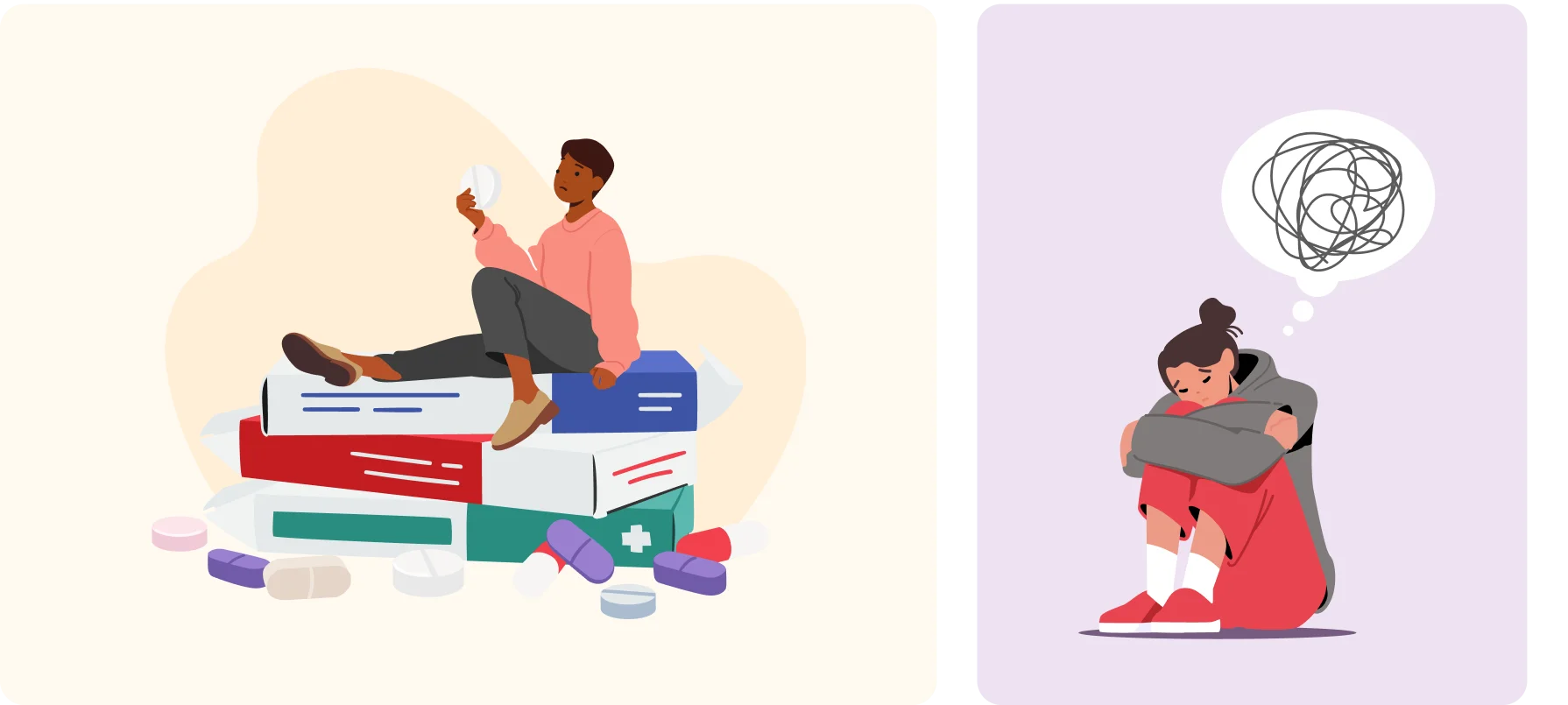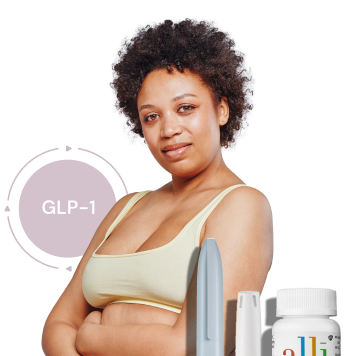Overview
What is drug addiction?
Drug addiction, also known as substance use disorder (SUD), is when you have an uncontrollable use of a substance (drug or medicine) that causes damage to your health and often to your social life: family problems, legal problems, or work-related issues.

Causes
Drug addiction is considered a complex disorder that affects the behaviour and the brain—by changing some nerve cells (neurons) and the way you feel pleasure. For example, drugs can hijack the brain’s natural reward system (the release of dopamine), leading to the reinforcement of drug-seeking behaviours.
Drug addiction can start with experimental use of a recreational drug in social situations, or particularly with opioids, with prescribed medicines. Addiction varies by person and drug (e.g., opioid painkillers tend to cause addiction more quickly than other drugs).
Substances that can lead to drug addiction:
- Alcohol
- Marijuana, hashish, and other cannabis-containing substances
- K2/Spice (synthetic cannabinoids) and bath salts (synthetic cathinones)
- Medicine such as Barbiturates, Benzodiazepines, and hypnotics
- Stimulants (cocaine, crack, amphetamine, ecstasy)
- Club drugs (MDMA, GHB and flunitrazepam)
- Hallucinogens
- Inhalants
- Opioid painkillers
Factors that can contribute to drug addiction:
- Environment—your family’s beliefs and attitudes, peer group that encourages drug use, availability of substances, childhood trauma.
- Genetics—your genes may affect how your body processes drugs (delaying or speed up the disease progression) and the level of reward experienced from drug use.
- Psychological conditions—such as depression, anxiety disorders, or post-traumatic stress disorder (PTSD)
- Prolonged drug use
Symptoms
The symptoms of drug addiction or substance use disorder can vary depending on the specific substance being used and your unique circumstances. Here are some common symptoms that may indicate the presence of drug addiction:
- Loss of control over its use—finding it challenging to limit or stop drug use, even when you have a strong desire to do so.
- Withdrawal symptoms (nausea, tremors, anxiety, irritability, depression, sweating, insomnia, or cravings) when attempting to quit or cut down on drug use.
- Intense cravings for the substance or urges for the drug that block out other thoughts.
- Increasing tolerance—needing larger amounts to get the same effect.
- Neglect of responsibilities at work, school, or home.
- Strained relationships with family members, friends, and partners.
- Money issues due to job loss and/or spending excessive amounts of money on drugs to support your addiction.
- Physical and mental health problems, including deteriorating physical appearance, changes in appetite or weight, chronic fatigue, insomnia, anxiety, depression, mood swings, and cognitive impairments.
- Unsafe behaviour—such as sharing needles or unprotected sex or doing other risky things you wouldn’t normally do, such as stealing or driving under the influence.


























